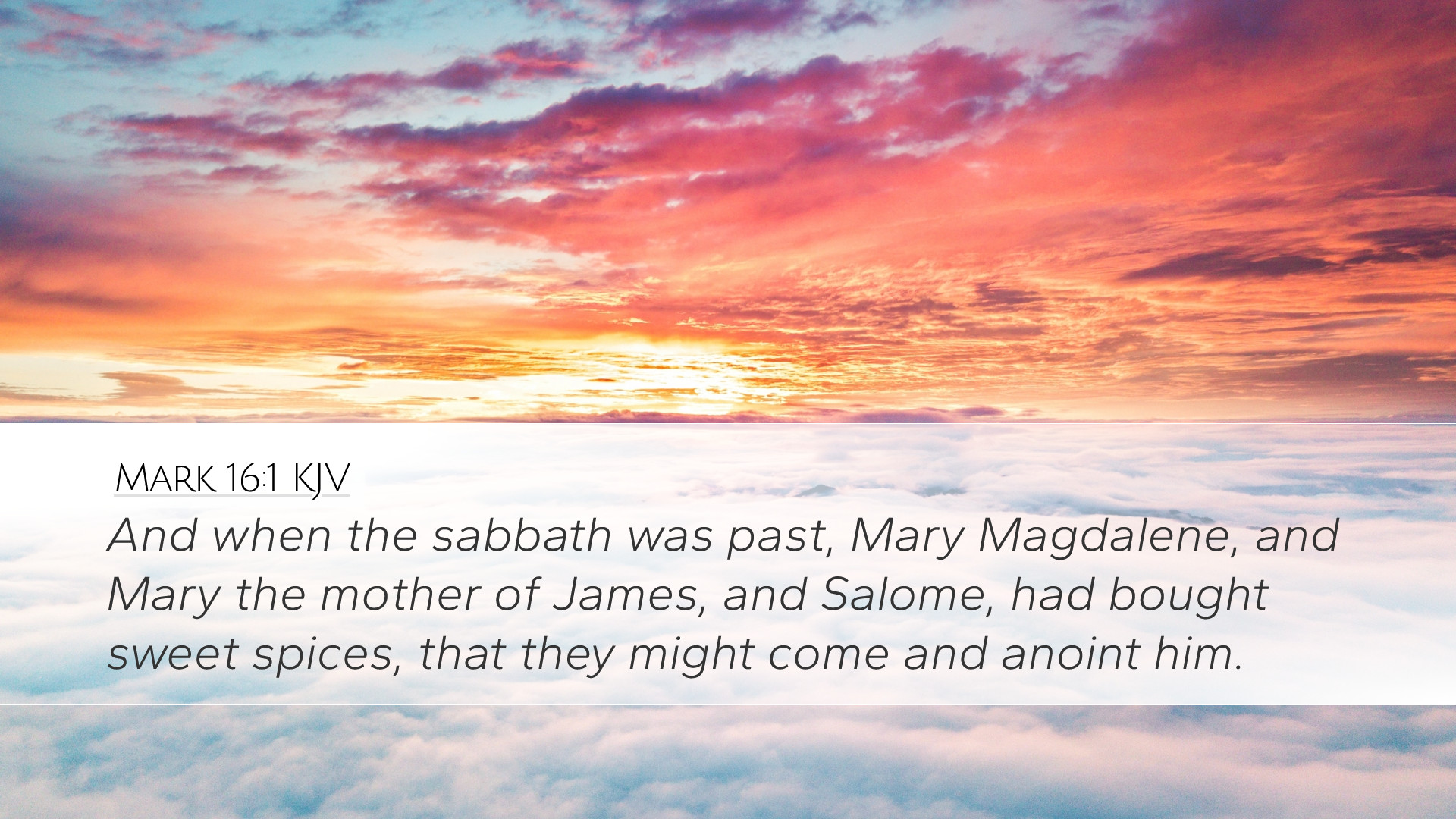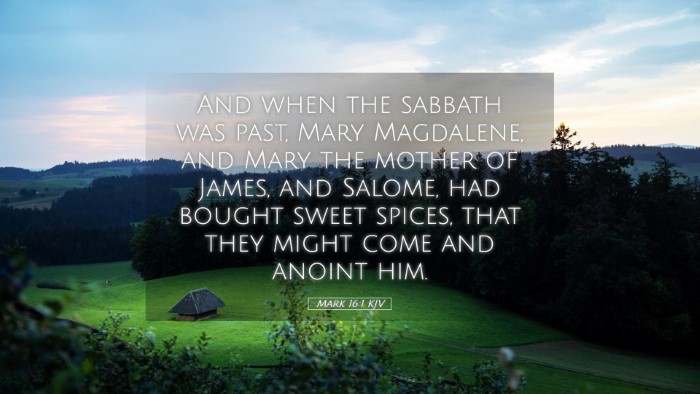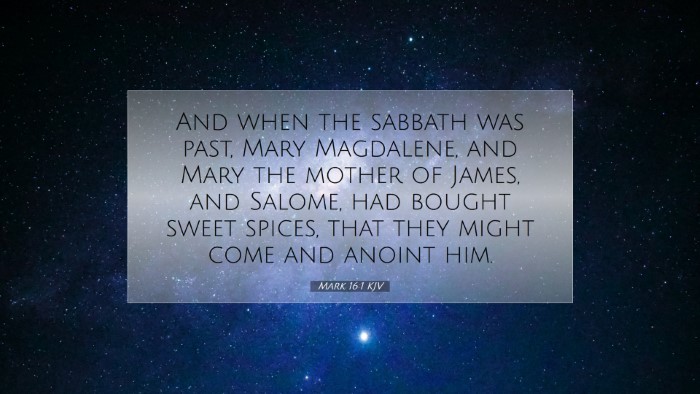Old Testament
Genesis Exodus Leviticus Numbers Deuteronomy Joshua Judges Ruth 1 Samuel 2 Samuel 1 Kings 2 Kings 1 Chronicles 2 Chronicles Ezra Nehemiah Esther Job Psalms Proverbs Ecclesiastes Song of Solomon Isaiah Jeremiah Lamentations Ezekiel Daniel Hosea Joel Amos Obadiah Jonah Micah Nahum Habakkuk Zephaniah Haggai Zechariah MalachiMark 16:1
Mark 16:1 KJV
And when the sabbath was past, Mary Magdalene, and Mary the mother of James, and Salome, had bought sweet spices, that they might come and anoint him.
Mark 16:1 Bible Commentary
Commentary on Mark 16:1
Text of Mark 16:1 (KJV): "And when the sabbath was past, Mary Magdalene, and Mary the mother of James, and Salome, had bought sweet spices, that they might come and anoint him."
Overview of Mark 16:1
This momentous verse in the Gospel of Mark sets the stage for the resurrection narrative, depicting the actions of the women who sought to honor Jesus after His burial. The context highlights the solemnity and significance of Jesus' death and the reverence of those who loved Him, preparing for their act of devotion.
Insights from Public Domain Commentaries
1. Matthew Henry's Commentary
Matthew Henry notes that the women mentioned in this verse were filled with grief and aimed to express their love and respect for Jesus through their planned act of anointing His body. He emphasizes their dedication, saying:
- Devotion of the Women: The choice of these women illustrates the central role of women in the early Christian community and their steadfast commitment to Christ, even after His death.
- The Timing: "When the Sabbath was past" indicates the importance of observing the Sabbath, even in a time of mourning, showcasing their adherence to Jewish customs.
- Symbolism of Spices: The "sweet spices" represent their grief and the perfumed offerings showing honor, reminiscent of prophetic anointings of kings and significant figures in Scripture.
2. Albert Barnes' Notes
Albert Barnes offers a rich analysis of the motivations and implications surrounding this verse:
- Historical Context: Barnes points out that the timing of the women's visit to the tomb—the first day of the week—signals a new beginning that foreshadows the resurrection, pivotal in Christian doctrine.
- Purchasing of Spices: He underscores the practical nature of the women’s actions. Contrary to the societal norms, these women proceeded to procure spices to honor Jesus, illustrating their active role in the burial rites.
- Literary Aspects: The mention of multiple women highlights collective action and commitment, exemplifying the theme of community in serving Christ.
3. Adam Clarke's Commentary
Adam Clarke provides a detailed exposition on the emotional and theological resonance of this passage:
- Emotional Landscape: Clarke discusses the sorrow and devotion experienced by the women, emphasizing that their actions reflect a deeper grief and longing for Jesus.
- The Role of Women: Clarke accentuates the historical importance of these women as first witnesses to the empty tomb, a role significant in the establishment of the resurrection narrative.
- Spiritual Symbolism: The act of anointing moves beyond mere custom; it signifies preparation for the resurrection and a foreshadowing of the joy that would soon follow their mourning.
Theological Implications
The verse is rich with theological implications that resonate with the Christian doctrine of resurrection and the importance of women in Jesus' ministry. The women's actions reflect a profound faith, trusting in Jesus even in death, which gives way to the transformative joy of His resurrection.
Some key theological themes to consider include:
- The Continuity of Faith: The women's devotion signifies that true faith continues even amidst despair.
- Community and Witness: Their actions foreshadow the communal aspect of faith as discipleship includes both men and women in the mission of Christ.
- Resurrection Hope: Mark 16:1 sets the expectation of resurrection, a pivotal event that is central to Christian faith, where mourning turns to joy.
Conclusion
Mark 16:1 serves not only as a poignant reminder of loss and devotion but also as the precursor to one of the most significant events in Christian history—the resurrection of Jesus Christ. As these women moved from mourning to anointing, they were unwittingly playing a role in the unfolding of God's salvific plan. Their commitment invites all believers to reflect on their own faithfulness in times of despair and reminds us of the transformative power of hope.


